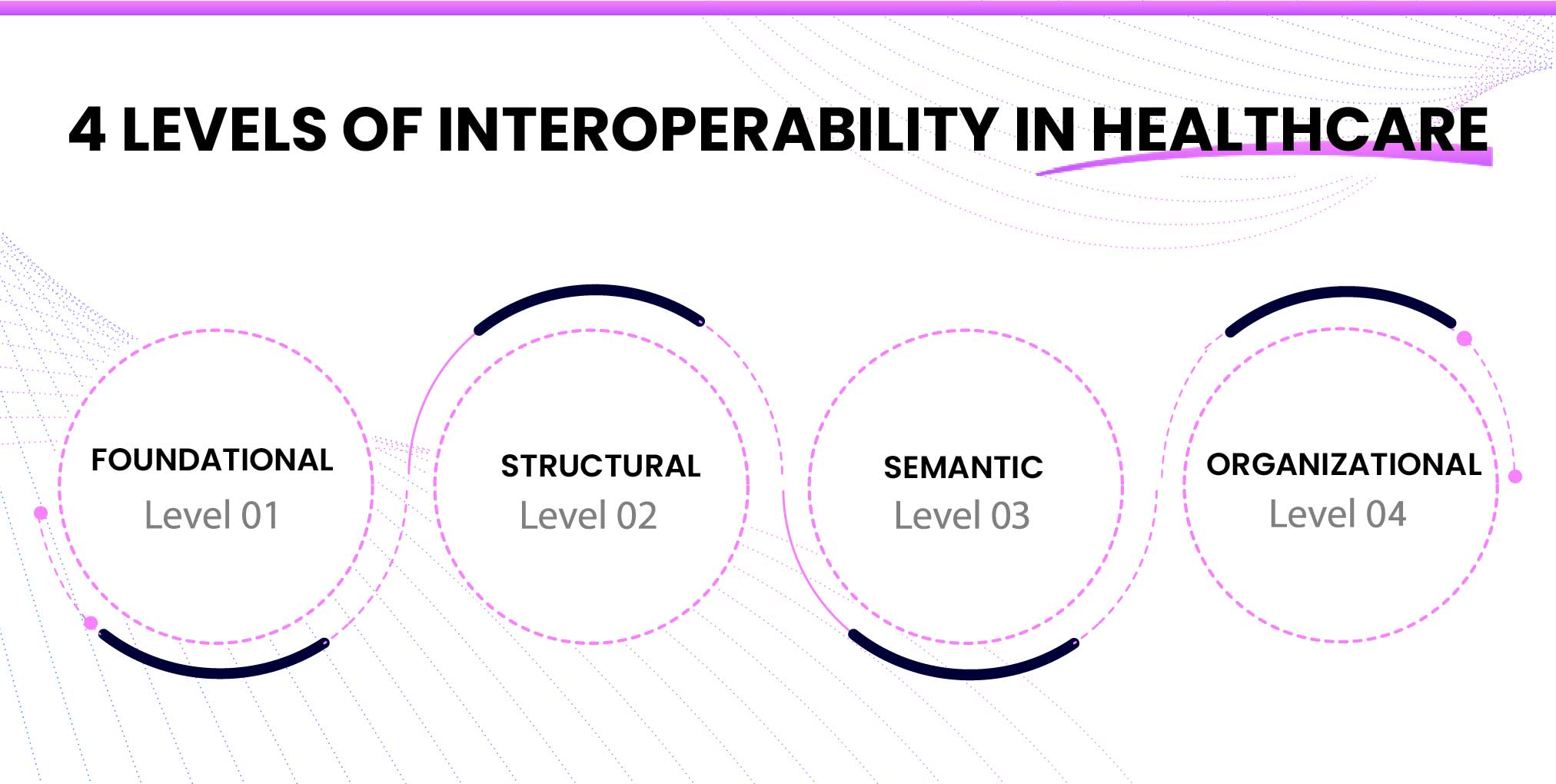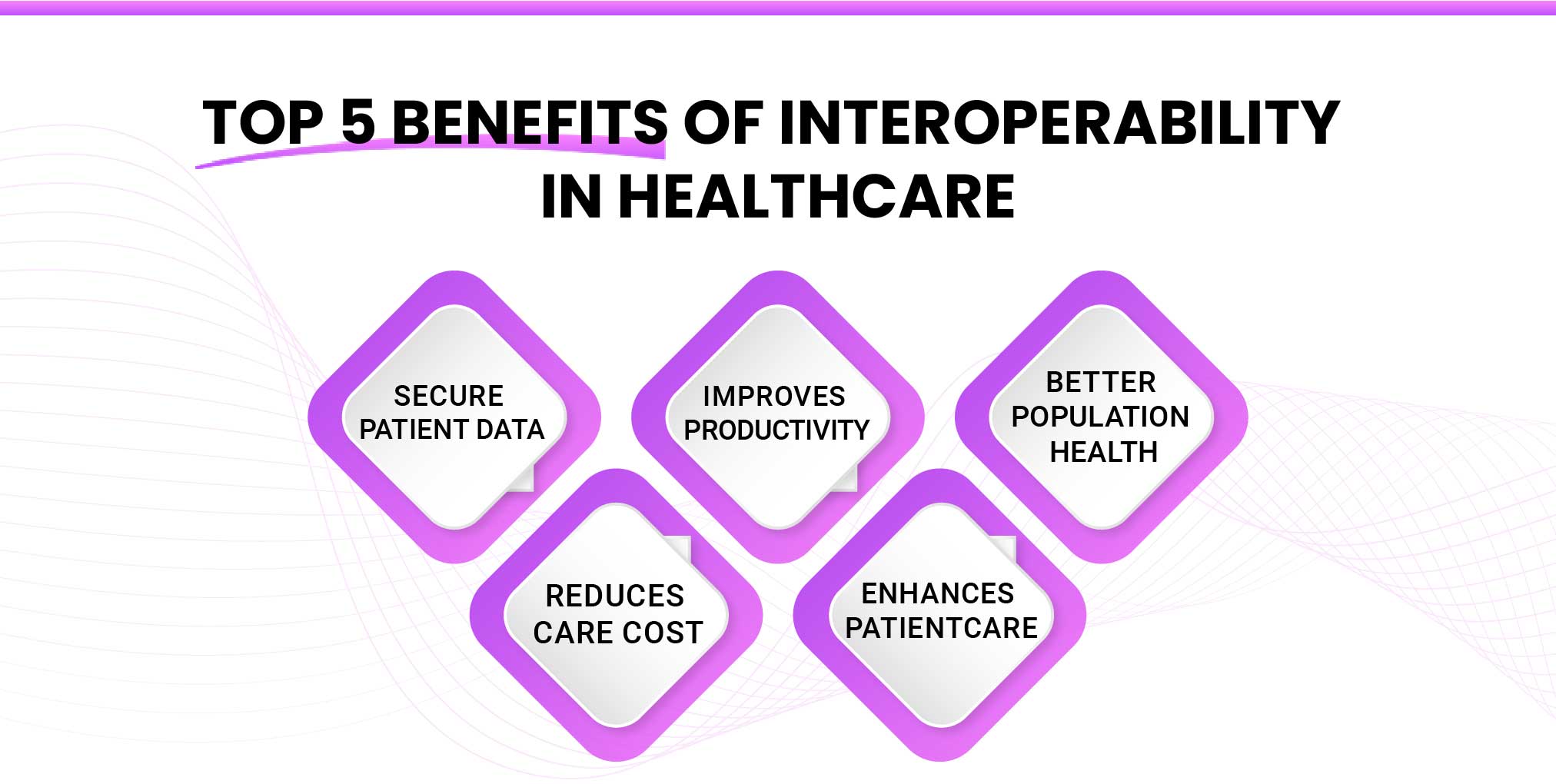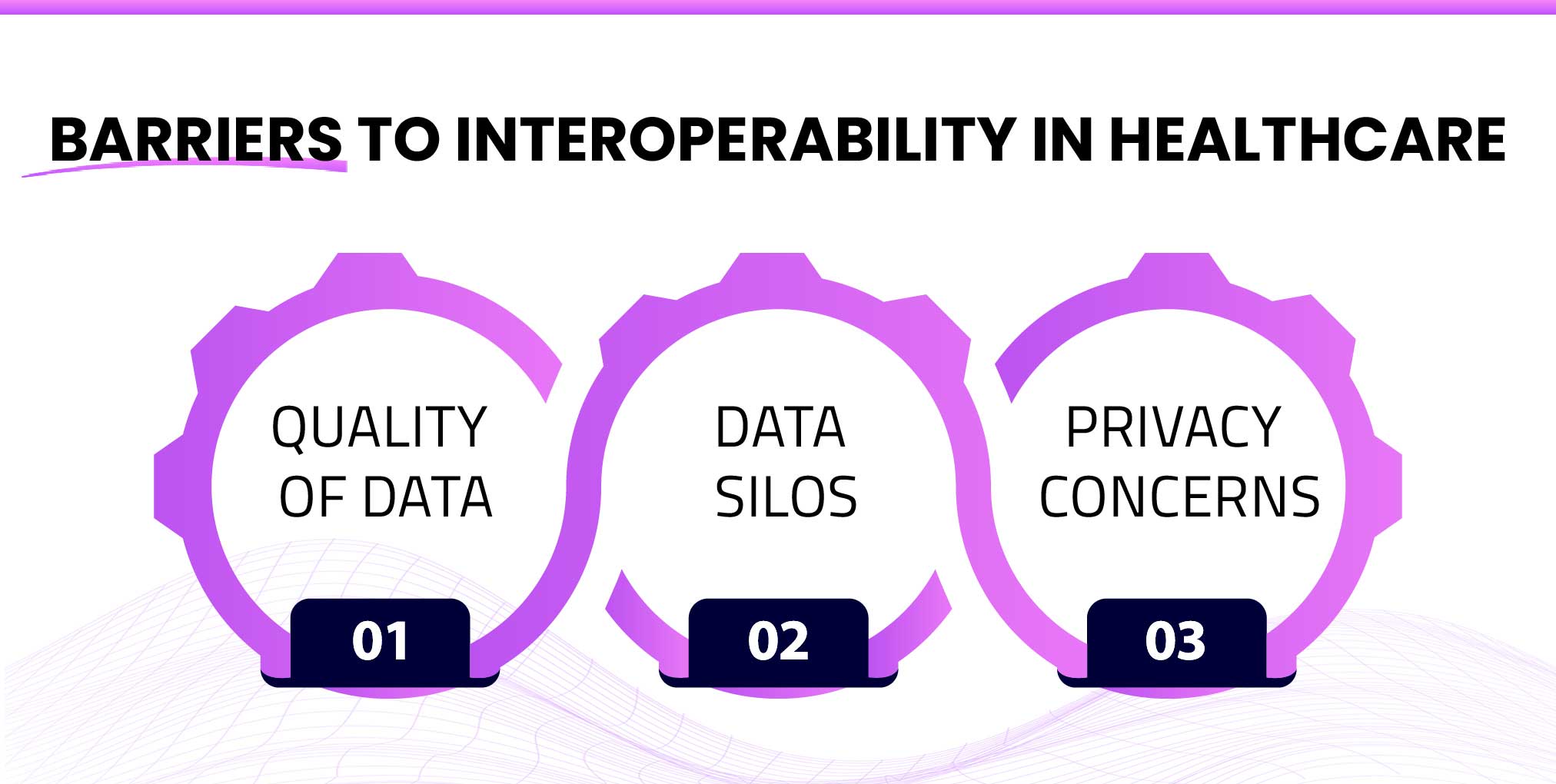

May 10, 2024
What is the first thing that pops up in your head when you hear the word healthcare? Are healthcare challenges the first thing that has clicked your mind, or is it the adoption of advanced technologies or solutions in the industry?
Whatever the case, it is crucial to know these two things go together as the challenges in the healthcare industry propel organizations towards embracing advanced solutions.
One such challenge is the lack of interoperability in healthcare. This results in delayed diagnosis that has adverse effects on patient outcomes. This challenge has compelled healthcare organizations to lean towards innovative healthcare interoperability systems.
The integration of AI in healthcare has changed how data interoperability in healthcare is achieved and utilized. Moreover, it allows organizations to reap the benefits of interoperability to the fullest. In this article, we will explore interoperability in healthcare, its importance, and its benefits.

You might be questioning yourself at this point: What does the term interoperability mean in healthcare? Interoperability in healthcare means the ability of healthcare information systems to interpret and share patient data, such as patients’ medical histories, vital signs, past treatments, etc.
The next thing to understand is interoperability isn’t just within different departments of the same organization. It can also involve sharing patient information among different hospitals, clinics, pharmacies, and laboratories.
Healthcare interoperability ensures that every healthcare provider has easy access to complete patient information to deliver high-quality care on time.
Interoperability is crucial for any organization to deliver quality healthcare to everyone. The importance of interoperability in healthcare is evident from the following examples:
Suppose a patient has heart disease and has consulted several doctors over time. Each doctor worked in a different organization and prescribed medication based on the patient’s condition.
It is possible that the patient misplaces or finds it challenging to maintain a record of the changing medication and updated medical reports. However, the new doctor requires them to make data-driven decisions to ensure extraordinary health outcomes. With interoperability among different systems, the doctor can conveniently access the patient’s medication history and deliver personalized medication.
Take another example to further understand the importance of healthcare interoperability. Suppose a situation arises (like COVID-19) where you can’t visit your clinician or doctor. In such scenarios, interoperable systems allow you to share your medical data obtained by using wearable AI technologies with your caretaker, who can then provide you with the required treatment or medication.

Are you curious to know how to achieve interoperability among different systems? We have mentioned the 4 levels of interoperability in healthcare that allow smooth data communication among healthcare systems and provide information about how AI can impact each level. Here are the 4 levels in which healthcare interoperability is classified:
In foundational interoperability, one healthcare system or app shares patient information with another. This level doesn’t require the interpretation of the shared data. This level improves with the use of AI technologies. Data is collected and exchanged efficiently with the use of AI.
In structural interoperability, the data structure or format of the information shared is defined. This level allows data to be interpreted at the field level. AI can enhance efficiency at this level by structuring data in easy-to-understand formats.
Semantic interoperability in healthcare is of the utmost importance. It is the level at which multiple systems can exchange data and interpret the information to utilize among different systems.
AI is known for its ability to understand and categorize data. This ability ensures that information is exchanged and actionable, which is vital for diagnosis, treatment planning, and personalized patient care.
Organizational interoperability goes beyond technical system-to-system exchanges. It ensures seamless healthcare operations among various stakeholders and promotes effective communication and coordination.
AI can significantly improve this level by streamlining workflows, reducing the burden on healthcare providers, and ensuring regulatory compliance.

Healthcare is one of the sectors in which timely access to data is crucial. It enhances patient care, thus reducing the likelihood of unfortunate situations. Here are the top benefits of interoperability in healthcare:
Patients are becoming increasingly concerned about their information. They are willing to sue healthcare organizations that cannot protect and secure their information. In such circumstances, it is crucial to protect patient data from unauthorized breaches and stealing at all costs.
Healthcare organizations recognize the benefits of integrating EHR systems within their ecosystems. These systems reduce manual data entry and allow only authorized persons to access patient data.
Healthcare interoperability enables these EHR systems to share patient data between different systems and authenticated professionals. It minimizes accidental data leaks, thus improving the patient’s trust within the organization.
Manually entering data and other administrative tasks takes a lot of time. According to Forbes, it takes two-thirds of a physician’s time to do paperwork. When physicians spend more than half of their time filling forms, how can one consider them to focus on patient care?
Interoperability in healthcare reduces the burden of manually entering patient data and maintaining patient records, as the data is readily available to everyone from different healthcare systems. Moreover, it allows doctors to communicate with patients’ past physicians or clinicians to understand patient conditions better and offer personalized care.
One of the most undeniable benefits of interoperability in healthcare is its contribution to improved population health. Intriguing minds must think about what it is and how it is possible.
Let us make it clear to you. Suppose different healthcare organizations have systems that can share patient data with each other. Undoubtedly, these systems allow caregivers easy access to patients’ data. However, these systems do much more than just that.
Interoperability in healthcare empowers doctors to monitor disease outbreaks and make arrangements before they become out of their hands. It is safe to say that interoperability of healthcare systems improves healthcare delivery and ensures proactive measures to address public health challenges.
Healthcare organizations want to remain cost-effective yet deliver effective patient care. AI-powered interoperability saves organizations a hefty amount of money by automating administrative workflows. Doctors can prioritize patient health, significantly reducing readmission rates and saving money.
Another way to save money is by eliminating the need for unnecessary tests. Interoperability allows different providers to access patients’ past medical reports. Moreover, resources are allocated more efficiently to deliver quality care to patients.
The end goal of every organization is to deliver exceptional care to patients so they can enjoy healthier lives. One of the core benefits of interoperability in healthcare is improved patient care.
Interoperability gives healthcare professionals in-depth information about patient’s medical history, medical results, past medications, and more. Doctors can utilize this information to provide personalized treatments to improve patient outcomes.
Moreover, there are fewer chances of any errors as integrated systems with AI capabilities allow professionals to know about the side effects or reactions of any prescribed medication.

No one can overlook the benefits of interoperability in healthcare. However, there are some barriers to healthcare interoperability that must be addressed. Here are some challenges to achieving interoperability:
The quality of data matters significantly. If patient data shared among systems or providers is incomplete or inaccurate, it can lead to diagnostic errors. What happens next? It may negatively impact patients’ health and result in unfortunate outcomes.
Data silos are another barrier to interoperability. Many of you might be thinking, what is it? It is a situation in which an organization uses systems that cannot easily integrate with other systems. Patients’ information remains only within one system and isn’t available to other providers. It results in delayed treatment and adverse effects on patients’ health.
Patient privacy is becoming a sensitive issue for healthcare organizations to handle. Cyber attackers have found new ways with the advancements in technology. However, HIPAA and HL7 regulations for data sharing must be met by healthcare organizations to avoid these concerns.
Artificial intelligence is the most significant trend that healthcare organizations are adopting at this time. It can streamline processes and empower healthcare providers to deliver exceptional care. Let’s explore how AI can help in the interoperability of healthcare:
The benefits of interoperability in healthcare are enormous. We can confidently say that it will significantly remove the burden on healthcare professionals and improve the quality of care. There are some interoperability challenges, but AI will take care of them. Organizations are increasingly adopting AI solutions, and we will likely see a fully interoperable healthcare solution for seamless data exchange. As technology advances, the role of AI in supporting and augmenting interoperability will undoubtedly grow.
Are you excited to achieve interoperability in your healthcare systems to deliver patient care like never before? Xeven Solutions is more than happy to help you achieve what you desire. Xeven Solutions is a dedicated healthcare AI development company that takes pride in delivering smart healthcare solutions for seamless data exchange across various healthcare platforms for the better. Get in touch to learn more about how we can help you achieve your objectives.